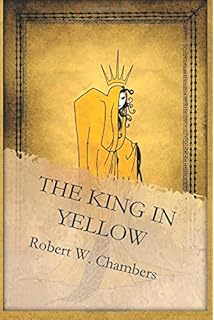I just finished listening to this, and it was pretty good. Some parts where very interesting while other parts just seemed like rather dull political/military history that really did not have much overall consequence. Though that just might be me getting a bit sick of listening to great courses history courses.
Anyway, what I found rather interesting was his explanation for why the Western Roman Empire fell. He argues that the Roman Empire suffered from a few inherent institutional weaknesses, most notably the succession and its defense. I am sure everyone knows about the succession problems, so his argument for defense is that since the army was just so costly to train and maintain that Rome relied on that superiority to be able to beat any other army on the open field, and if things truly went to shit, then you could move an army from the quieter areas to that danger areas.
The problem arises when the Empire is threatened on multiple fronts and succession crises. Well, there were a crap ton of succession crisis in the 3rd century. On the front issue, the German tribes became better organized and, most importantly, the Sassasanid Empire's rise in the East. This was a powerful foe that required the Roman Empire to move troops from the West to the East to be able to defend against this new threat. Problem is, the Germans then started raiding and settling in the West because there was now not sufficient force to beat them back. This was further compounded by Rome's numerous civil wars during the period that absolutely bled them dry. Consequently, Rome was militarily weaker, they had to raise a crap ton of money to raise new armies to defend against their enemies who now were aware of Rome's weakness, which lead to increased taxes, currency debasement and the increasing reliance on barbarians to fill out the ranks. That shit just increases overtime, and bam, fall of Rome.
Personally, I find the ecological, disease and demographic crises as the main reason to be more convincing because it explains so much, but this definitely seems like very good major second reason. I never really liked the whole barbarian argument because it did not make much sense to me, but the Persians being the impetus for that does make a lot of sense.
Onto the Byzantium Empire, I think the reign of Justinian presents a fascinating what if question. During the reign of Justinian, the Byzantium Empire undertook tremendous efforts to re-conquer the Western Roman Empire, basically meaning North Africa and Italy first. While they 'won', they could not hold onto these territories for long, and these military excursions absolutely bankrupted the state, weakened the army considerably, and saw basically all of its territory and power shrink considerably.
One of the major why this was not successful to due a massive demographic collapse during the reign of Justinian due to plague. So, it is interesting to think about what would have happened if the plague didnt hit? Would the Roman Empire have been unified? Would the Byzantine-Sassanid wars been avoided? the Persians were preying upon Byzantine weakness and trying to conquer new territory, but the Byzantines eventually got a brilliant Emperor in charge, reformed the military, and just absolutely crushed the Persians. Right after he did that though, was the rise of the Islamic Empire. Would that Empire have been successful if it wasnt for Justinian's failure, the plague, and the Byzantine-Sassanid Wars that basically destroyed one power and left the other short of manpower and will to do anything (Emperor had a water phobia).
Pretty crazy how a plague at just the right moment might have prevented the re-unificaiton of the Roman Empire and allowed the Islamic Empire to just spread like wildfire over the Middle East and North Africa.
Basil the Bulgar Slayer has to be the best nickname ever (I even made a thread about it!), but he actually did some important non-Bulgar slaying shit. He expanded the borders, kept peace at the borders, and enriched the treasury. Perhaps his most important reforms were his land reforms that tried to get them into the hands of peasants instead of them getting scooped up by powerful Eastern nobles. Not only did this have the effect of reducing the power of the Eastern Nobles (who constantly threatened the power of the Emperor), but it also set the empire on a much better economic and stable footing. Another important reform was his edict that allowed the Orthodox Slavs to be able to worship how they wanted and with their own preachers.
What is amazing is how this all went to shit after he died. The preceding rulers took the exact opposite approach - canceled the land reform, interfered with the religious institutions of the Slavs, spent lavish amounts of money, ruined the army (out of fear of revolt) and turned the political game into even more of a traitorous, backstabbing affair. All of this culminated in the battle of Manzikert that saw the Turks defeat the Byzantines on the field, which started the Turkification of Anatolia. What is crazy is that the Byzantines could have likely won, but due to the back-stabby politics of the Byzantine court, the second army that was supposed to support the Emperor (which was equal in number) never showed up to the battle. Even so, during the battle it was relatively even. The emperor decided to slowly pull back after a day of fighting, but then one of the nobles decided to call out and spread the rumor that the Emperor was dead. This caused the army to flee, a mass route ensued and the Emperor was captured.
This battle right there basically resulted in the Crusades because the Byzantines no longer had the power to fight the Turks on their own, so the Byzantine Emperor called on the Pope to help. Problem is, is that the Crusades were not all that successful for the Byzantine Empire. Essentially, it was really a culture class, conflicting interest and mistrust. Basically, just picture a Germanic tribe (western Europeans) visiting the Roman Senate (Byzantium). This was further exacerbated due to the fact that the Crusaders decided to create Crusader states instead of give those to the Byzantine Empire. This created great distrust and probably disgust on both sides, specifically the cities of Antioch and Odessa, which were considered very Byzantine since Orthodox Greeks lived there.
I should point out that the only reason why the first Crusade was successful was that the Middle East at this time was politically fragmented and weak, so they were able to play off groups off one another. And the Crusades were actually an impetus that caused the Muslims to unite, and when they did they kicked the Latins out.
Well, due to those Crusader states existing, they needed to be defended, which caused more crusades and more distrust, which eventually led to the 4th Crusade and the sack of Byzantium. This basically ended Byzantium as a power and pretty much doomed it to whoever could take it. This does make it amusing that much of the West Bemoaned the fall to the Turks when they were the ones who helped make that happen. Also interesting is that the Greeks likely much preferred the Turks to the Latins, because during the period when the Latins controlled Constantinople and set up feudal states within the Empire, they tried to force Catholicism, Latin bishops etc as well as established feudalism and serfdom. The Turks just left the Orthodox Greeks alone and worked through the existing institutions.
One Interesting consequence of the sack of Constantinople by the Latins and then the fall of the city by the Turks was that Greek culture began to spread more to the West and spread dramatically right before the fall of the city to places like Italy. This allowed the Italian Renaissance, which was mostly just a Latin Renaissance, to have access to Ancient Greek texts and Greek speakers who kept that Classical tradition alive. So yea, he very much discounts the opinion that the Moors or other Muslims were the ones who transmitted classical learning to Europe, and I think that makes a lot of sense. What the Moors did was to spread very technical subjects like Math, geometry, mapmaking, etc and also Aristotle and important commentaries by Avveroes (a Moor) on him. Italy already had access to much of the Classical Latin literature, they simply needed to find it. And the vast majority of Greek literature and knowledge came from the Byzantium Empire. Personally, I think that just makes sense. I mean, why would the Muslim world need to be the ones who transmitted classical learning to Europe when the Byzantine Empire existed?
So yea, an interesting and important period, and, as the speaker notes, that it is kinda funny that the Byzantine Empire might have achieved its greatest influence after its fall since Greek literature and thought became very important to the West and many of the major events, the Renaissance, the Reformation, etc etc.

























